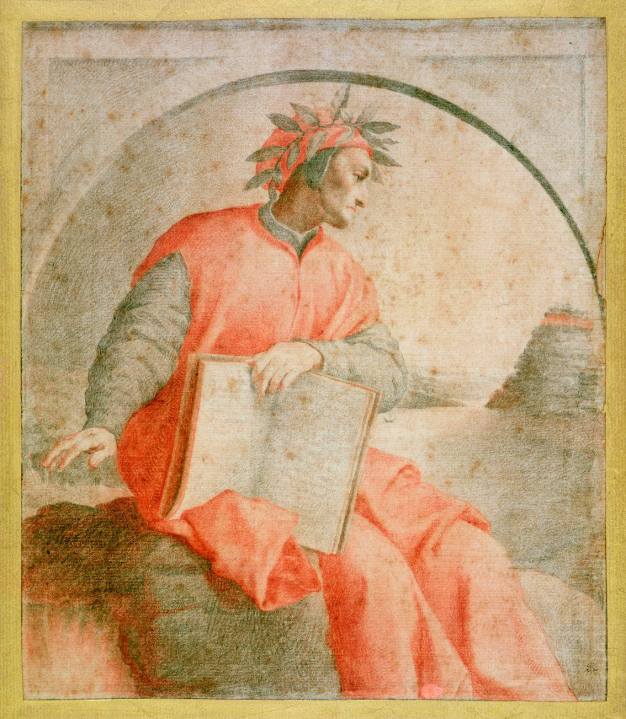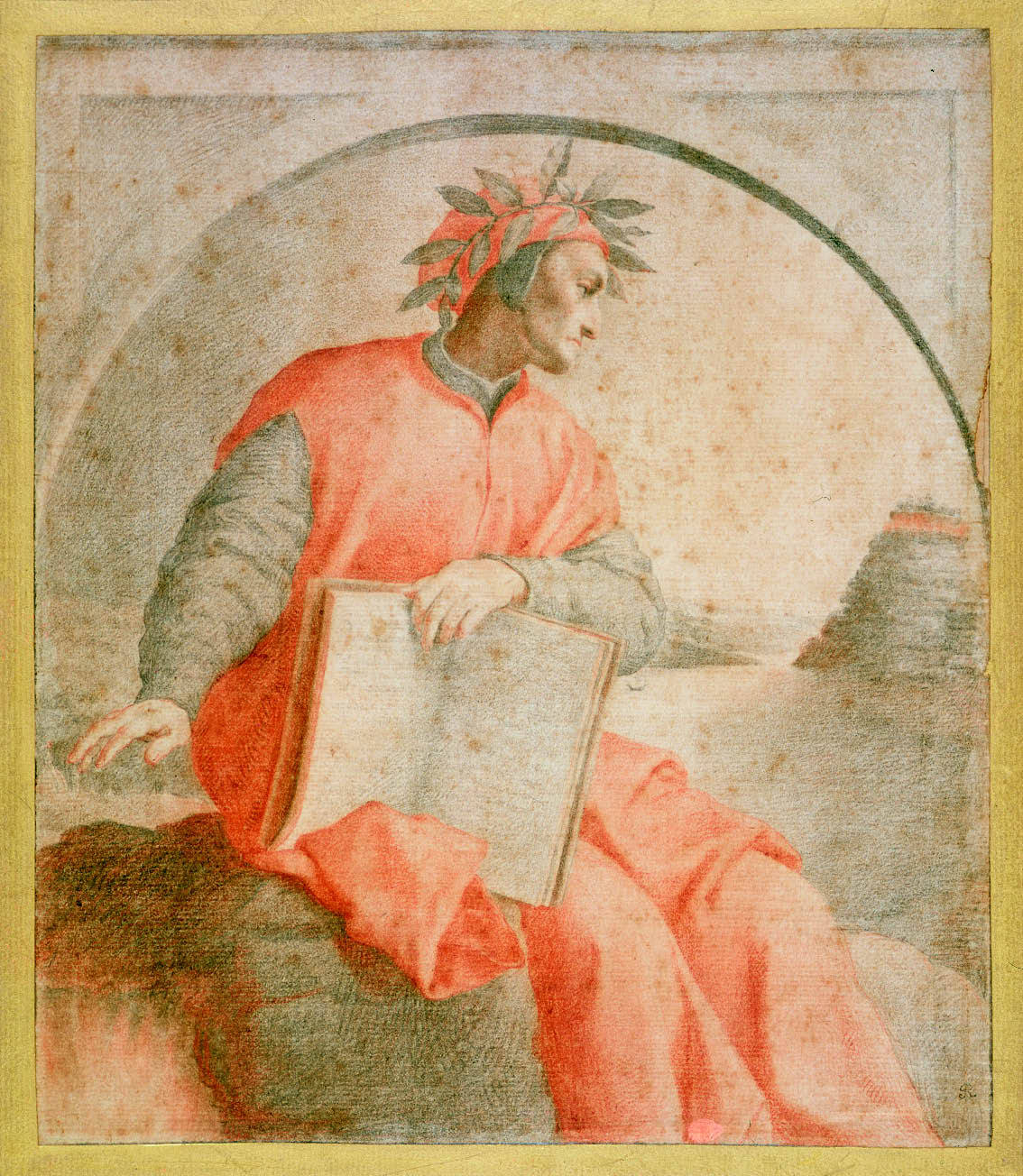What’s your punishment going to be, when you get to Hell? At least as envisaged by Dante, you might be somewhat surprised. Hitler (mass murderer) is in the outer ring of the seventh circle, up to his eyebrows in a river of blood and fire. Still, that’s a little better than the innocent manager of your local HSBC (banker), who is in the inner ring, running perpetually on burning sand. Both get off much lighter than the poor lady who, the other day, told me how much she’d enjoyed something or other I’d written (flatterer). She’s a whole circle lower down in the second bolgia, or pit, sitting in excrement forever, which seems rather harsh. Corrupt politicians are immersed in boiling pitch, but they are nowhere near as far down as the impersonators. If I were Rory Bremner I’d frankly be worried.
Because Dante’s language is so direct, his expressive style most powerful when most simple, and because his cosmology is so readily visualised and understood, we tend to think of him as easier than he is. Many an Italian schoolchild has found the Inferno much more vivid and accessible than their other standard set book, Manzoni’s I Promessi Sposi, written 500 years later.
But that, of course, is an illusion. The poem seems to speak to us in the beautiful simplicity of its language — ‘nessun maggior dolor/Che ricordarsi del tempo felice/Nella miseria’. The complexities of suffering and the paradoxes of human motivation are richly encapsulated in language which a child could understand, never more so than when Ser Brunetto, running, leaves his pupil ‘e parve di costoro quelli che vince, non colui che perde’ — ‘he seemed like someone who was winning, not losing [a race].’
And if the human qualities of fallibility speak most strongly to us in the Inferno — we all feel the unfairness of Ulysses’ punishment — then humanity is never lost sight of, even at the most elevated moments of the Paradiso. We do feel that Dante is rooted in the most unchanging aspects of humanity, in a way that some of his contemporaries are not — the Divine Comedy is much less heavy-going than Piers Plowman, say.
Dante, essentially an earthy and observational poet, fills his work with the most workaday and familiar props. A.N.Wilson identifies many references to the behaviour of street dogs in the Inferno, notably the usurers in Canto 17, who fiddle with their hands like dogs gnawing fleas in their paws. He also demonstrates how very exact Dante is whenever he talks about falconry — the treatment of the envious in Purgatory or the speech of the angel in Paradiso 19. When Geryon lands, he is compared to ‘a falcon wearily settling, having caught no prey’.
Proust observed that the figure of Charity in the fresco in Padua painted by Dante’s friend Giotto resembles ‘a cook handing up a corkscrew through the skylight of her basement kitchen to someone who has called down for it through the ground-floor window.’ That homely quality in the most elevated of settings also distinguishes Dante, and gives him a degree of familiarity.
Such direct shocks of observation and clarity may mislead us. As Wilson says, many readers of Dante omit, or pay little attention to, the dense matter of direct contemporary relevance. Most of us could give a general account of Paolo and Francesca’s doomed love, and perhaps even quote a line or two. We know about the sin of lust, having experienced it ourselves. But very few could explain why Dante liked or disliked certain popes or emperors or princes so much; and that is obviously at the heart of his great poem. Wilson, as a long-time reader and student of Dante (so enthusiastic that he named his daughter Beatrice), has set out to provide a guide to his world in all its impossibility and remoteness.
The historical setting certainly supplies a great number of vivid and monstrous personalities. The popes of the time provide a richly comic panoply of human strangeness, greed and folly — none odder than Celestine V, an ‘octogenarian bumpkin’ so holy, when discovered living in a mountain cave, that he ‘had been able to hang his cowl upon a sunbeam’. In a moment’s diversion from their customary preference for worldly pontiffs, the cardinals first made him pope when he begged ‘to have a cell constructed [in the palace] which would remind him of his mountain hermitage’. Then they changed their minds and allowed him to abdicate. Then they imprisoned him, and finally they assassinated him by driving a nail through his skull.
Wilson explores in some detail and with much enthusiasm the complex politics and princely arguments which lie behind the Commedia. If, like me, you grow vague on being asked to give a 1066-type summary of the Guelfs and the Ghibellines, both Black and White factions, and explain what, if anything, all this had to do with the Cathars, then this seems to me a good book to rely on. Wilson is competent and accurate on what is known of Dante’s personal history, as filtered through his own account, and has a clear image of Florence at the time. Most of us would think anachronistically of a town with one big dome by Brunelleschi in the middle. Wilson reminds us that it was in fact much like San Gimignano, or those terrifying villages deep in the Mani, or Sana’a in the Yemen, full of towers built for the sole purpose of intimidating and fighting the immediate neighbours.
He is also good on the language of The Divine Comedy, which in a way is Dante’s most important contribution: it is largely because of him that the vernacular of Tuscan turned eventually into standard Italian, rather than mercantile Venetian or imperial Neapolitan. ‘By the time that Dante had completed the Comedy, 90 per cent of the words in a modern Italian dictionary had entered the language —30 per cent of Italian words are Dantean coinings.’ This explains why we find Dante easier to read than writers in other dialects.
Wilson prefers, I think, theological considerations when they take on a worldly aspect. The Church’s invention of Purgatory, shortly before Dante’s career, became very useful to it as a source of income. There’s no point in praying for anyone in Heaven or Hell; on the other hand, if you believe that your relative is languishing in Purgatory, then it would make perfect sense to give the Church some money to pray to lessen his suffering. All this is highly interesting to Wilson. On the other hand, he seems somewhat detached from the finer points of theological debate. He says ‘why [Arnaut Daniel and Guido Guinizelli] are in Purgatory when Brunetto is in Hell [for the same sin], Dante does not tell us.’ But that is because it doesn’t need saying I presume: the general principle is that Purgatory is for sinners who repented before they died.
On the whole, this is a reliable and learned guide to Dante, full of love and years of study. It lacks, however, Wilson’s best and most characteristic quality as a writer: a fundamental irreverence. His previous biographies, of Tolstoy, C. S. Lewis and Betjeman among others, have always been distinguished by his willingness to see and enjoy the absurdity in human beings. There is, of course, much less evidence about Dante on which to base a human story, but the tone of solid admiration and detailed exegesis loses some of that liveliness which has always been Wilson’s strong point. You can see his inner satirist bursting to escape when he wonders what Dante’s wife thought of all that going on about Beatrice; it is, however, to the book’s loss, quite sharply restrained. I think flaws in the home lives of the great are Wilson’s forte; he should have indulged them here.







Comments